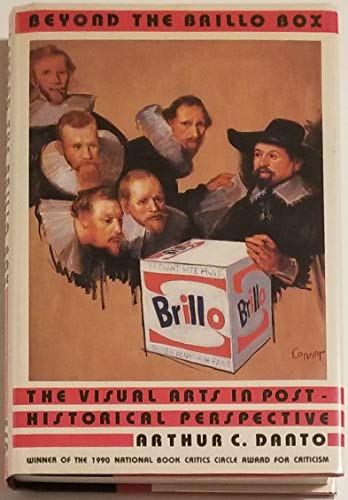Synopsis
In Danto's view, Andy Warhol's Brillo Box was not only a radical attack on traditional definitions of the art work; it brought the history of Western art to a close. In this collection of interconnected essays, he grapples with this and many more of the most challenging issues in art today, from the problems of contemporary pluralism to the dilemmas of censorship and state support for artists.
Reviews
In Danto's view, artists' feelings of belonging to a continuous tradition vanished around 1965, one year after Andy Warhol's Brillo Box. In the current "post-historical" epoch, he writes, postmodernists make pathetic stabs at reconnecting with the past, when what is really necessary is an art responsive to human needs. In these often heavy, academic lectures and essays for journals and catalogues, the Columbia philosophy professor and Nation columnist interprets Pop Art as "a sacramental return of the thing to itself" and applies his definition of artworks as symbolic expressions to a discussion of African "primitive" art and Chinese painting. One challenging essay deals with Western art's "master narrative," comprising the Renaissance's "narrative of recovery," the Enlightenment scenario of progress and modernism which, for Danto, began when Van Gogh and Gauguin turned for inspiration to Japan, Egypt and Polynesia. Elsewhere he defends the National Endowment for the Arts' sponsorship of the controversial Robert Mapplethorpe exhibit and delves into minimalism, museum architecture and pluralism in the arts. Illustrations.
Copyright 1992 Reed Business Information, Inc.
"About this title" may belong to another edition of this title.
